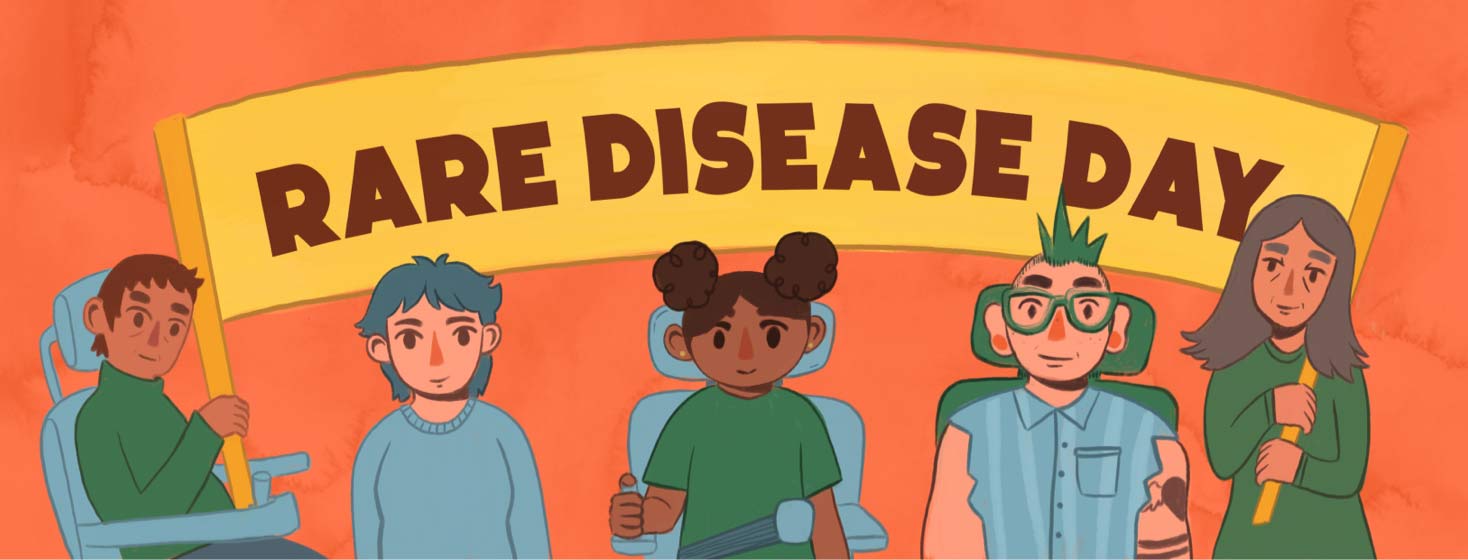Rare Disease Day
The last day of February is Rare Disease Day! To celebrate and acknowledge this important day in the rare disease community, we asked our advocates: What does Rare Disease Day mean to you? We're sharing their responses!
Research around new treatments
Allie: I think Rare Disease Day is a very important day to celebrate. Not only to bring awareness to our disease, spinal muscular atrophy, but to the other diseases in the world around us. There are so many diseases that are so rare they are not even officially named yet and it’s important to have days to bring awareness that treatment research is needed for all, not just well-known diseases and disorders.
A day to celebrate and spread knowledge
Samantha: Rare disease day means a day for celebrating the community of people that I am a part of in all of our disabled glory. It is a day for celebrating our successes, gains, and advocacy in a world of ableism where we aren’t necessarily recognized for our achievements.
It’s a day for our allies to speak out about us and about disability in general. I use it as a day to share about others in my community, a day to spread knowledge about my specific disease, and hopefully, as a day to feel truly seen by the rest of the world.
Connections with the wider rare disease community
Michaela: For me, it’s a day to celebrate my community as much as it is about focusing on research. While SMA is the rarity I live with, I feel like there’s a place for me in the wider rare disease community and the day gives us space to be together and learn from each other.
I think now more than ever, it’s important to come out of our silos and look to each other in the rare disease community. I have learned so much from my friends with other neuromuscular conditions and cystic fibrosis, and Rare Disease Day gives us an opportunity to do that on a larger scale.
A way to shed light on different disabilities
Chaz: Rare Disease Day isn’t actually something I had heard of until last year and strangely I was told by one of my coworkers. The Abilities Community at my job wanted to plan an event with a panel of employees who have a rare disease and were willing to share their life experiences.
Of course, I was all in and I think it’s just a great way to shed light on disabilities we don’t hear about often and spread empathy, especially in a corporate setting. Even being on the panel, I still learned about what it’s like to live with conditions that aren’t SMA.
Celebrate the uniqueness of being rare
Ainaa: Being rare is different but not so different. Rare is something special, something unique. Rare is remarkable. Something that doesn’t exist often. But also something I should not forget about. Something that I shouldn’t take for granted.
Being able to celebrate Rare Disease Day provides an opportunity to show the world who we are and recognize individuals who have significant challenges in life. To me, we all are different in every way.
Every day is a rare day for me. I am happy and feeling grateful. Life is beautiful. Cherish every moment you have. Put value in everything you do. Believe me, it works.
Hope for more treatment options
Mike: I have never really given much thought to Rare Disease Day. I sometimes forget that spinal muscular atrophy is a rare disease. A quick Google search shows there are about 7,000 rare diseases.
I think it’s very important to highlight these rare diseases so that we can understand their cause and learn how to treat them. Obviously, anyone who has a disease, especially one that affects the quality of their daily life hopes for a cure. Now that I’m in my mid 40’s I don’t dream of a cure, but I hope for more treatments.

Join the conversation